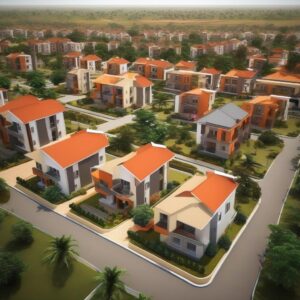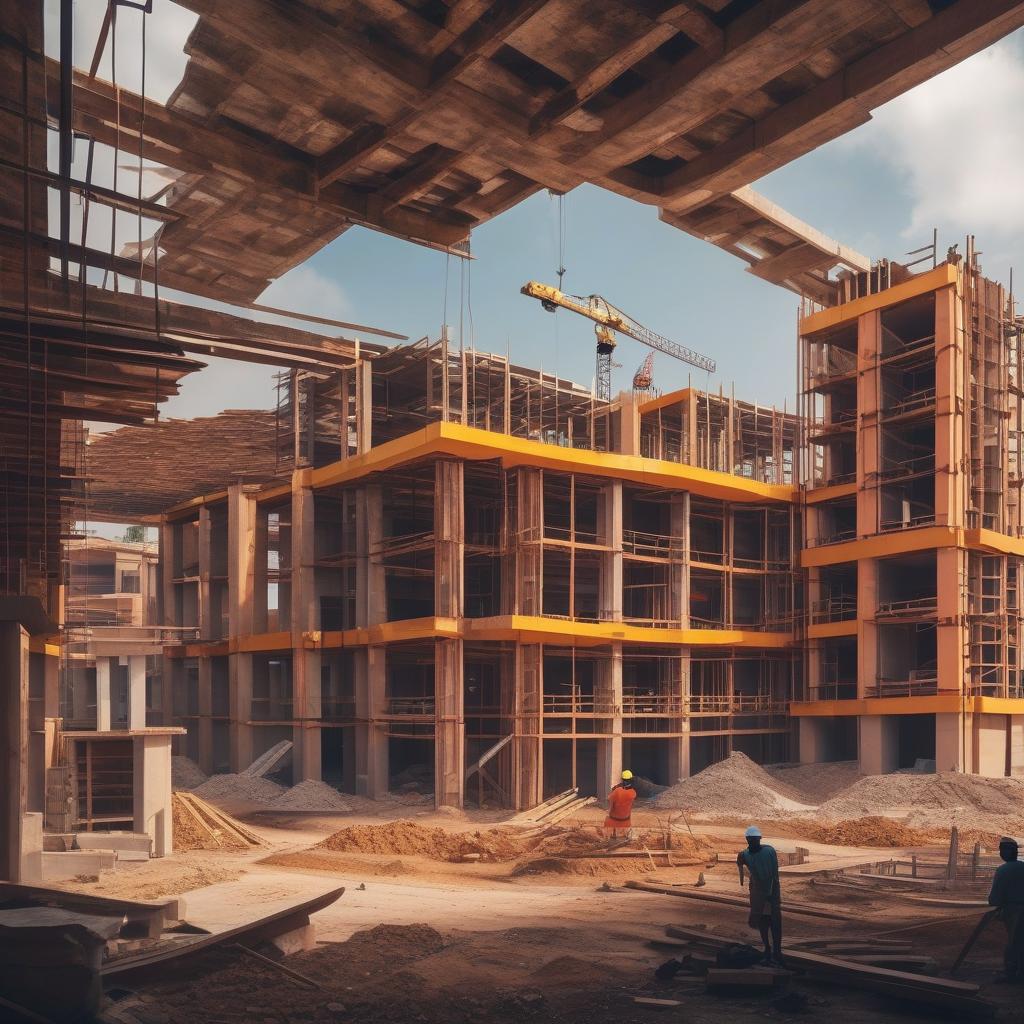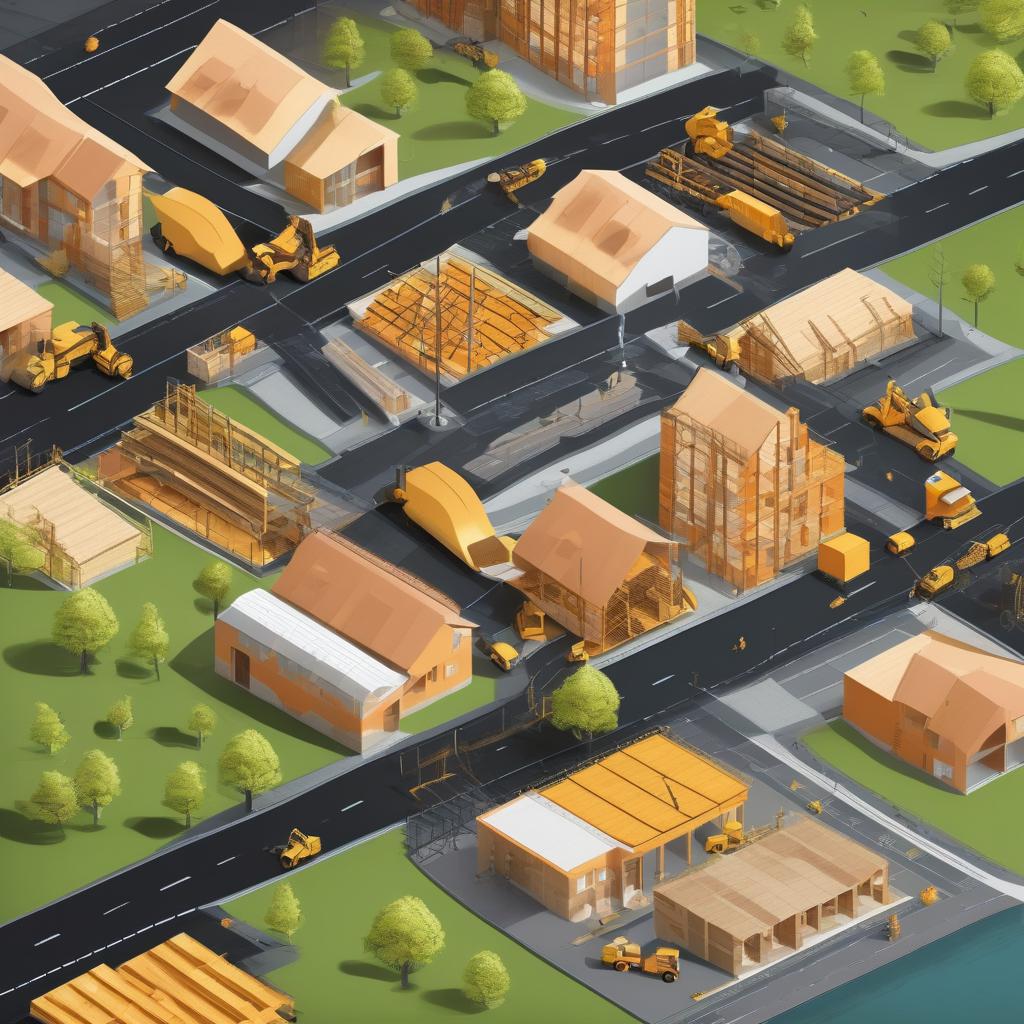Introduction
Discover practical and budget-friendly tips for affordable housing solutions in Ghana. Learn how to navigate the housing market, save costs, and find quality homes within your budget. Ghana faces a significant housing deficit, estimated at over 2 million units as of 2023, with urban areas like Accra and Kumasi bearing the brunt of this crisis (Ghana Statistical Service, 2022). Rapid urbanisation, population growth, and high construction costs have made homeownership a distant dream for many. However, innovative solutions and strategic planning can bridge this gap.

In this article, we explore seven budget-friendly tips to navigate Ghana’s housing market, empowering you to secure a home without compromising financial stability.
- Utilise Alternative Building Materials
Traditional materials like cement and steel are expensive, but alternatives can slash costs by up to 40% (UN-Habitat, 2021).
Examples:
- Compressed Earth Blocks (CEBs): Made from local soil, CEBs are durable, eco-friendly, and cost-effective. Organisations like Habitat for Humanity Ghana promote their use in rural and peri-urban areas.
- Bamboo: Abundant in Ghana, bamboo is lightweight, renewable, and ideal for roofing and framing. The Bamboo and Rattan Development Programme trains builders in bamboo construction.
- Recycled Materials: Repurposed plastic or tires can create walls and floors. Startups like Nelplast Ghana transform plastic waste into affordable building blocks.
Case Study: The Earthbag House Project in Tamale utilised sand-filled bags to build disaster-resistant homes at half the cost of conventional houses.
- Explore Government Housing Initiatives
Ghana’s government has launched programs to address affordability:
- National Affordable Housing Programme (NAHP): Offers subsidised housing units starting at $10,000 in cities like Koforidua and Tamale. Eligibility requires proof of income and Ghanaian citizenship.
- SSNIT Housing Projects: The Social Security and National Insurance Trust provides mid-income housing through instalment plans.
- Rent-to-Own Schemes: The Rental Housing Scheme targets low-income earners, allowing tenants to own homes after 10–15 years of rent payments.
Tip: Visit the Ministry of Works and Housing website for application details and deadlines.
- Participate in Cooperative Housing Societies
Cooperatives pool resources to purchase land and materials in bulk, reducing individual costs.
How It Works:
- Join a registered cooperative (e.g., Kumasi Housing Cooperative).
- Contribute monthly savings to a collective fund.
- Benefit from shared construction services and negotiated land prices.
Success Story: The Tema Cooperative Housing Society built 500 homes for members at 30% below market rates by leveraging group purchasing power.
- Leverage Microfinance and Housing Loans
Microfinance institutions (MFIs) offer flexible loans tailored to low-income earners:
- Republic Bank (formerly HFC Bank): Provides Home Loan Packages with low-interest rates (12–15%) and 20-year repayment terms.
- Opportunity International Savings and Loans: Offers Jigida Housing Loans for women, emphasising financial literacy.
Pro Tip: Compare terms across institutions like CAL Bank and Fidelity Bank to secure the best deal.
- Opt for Modular and Prefabricated Homes
Prefab homes, constructed off-site and assembled locally, cut costs and time.
Benefits:
- Speed: Built in weeks vs. months.
- Cost Savings: Addoha Ghana delivers 2-bedroom units for 15,000 15,000–20,000, excluding land.
Example: The Kasapreko Company partnered with Housing.com.gh to provide modular homes for factory workers.
- Consider Rent-to-Own Schemes
Rent-to-own agreements allow tenants to pay rent that accrues toward eventual ownership.
Providers:
- Ghana Real Estate Partnership (GREP): Requires a 5-year rental period before transferring ownership.
- Private Developers: Companies like Regimanuel Grey offer flexible terms in Accra’s outskirts.
Caution: Review contracts for hidden fees and ensure legal oversight.
- Adopt Sustainable and Energy-Efficient Designs
Long-term savings come from reducing utility bills through smart design:
- Solar Panels: Offset electricity costs; Ghana’s Renewable Energy Master Plan aims for 10% solar adoption by 2030.
- Rainwater Harvesting: Systems cost 500–500 $ 1,000 but save thousands annually.
- Natural Ventilation: Strategic window placement reduces AC dependency.
Resource: The Ghana Green Building Council certifies eco-friendly homes and offers design guidelines.
Frequently Asked Questions (FAQs)
Q1: What is Ghana’s current housing deficit?
A: Over 2 million units, growing by 5.7% annually due to urbanisation (World Bank, 2023).
Q2: How do I apply for government housing programs?
A: Visit the Ministry of Works and Housing portal or regional offices with ID, proof of income, and application forms.
Q3: Are alternative materials durable?
A: Yes! CEBs and bamboo meet international standards when properly treated (Ghana Standards Authority).
Q4: Can foreigners access affordable housing?
A: Some programs require citizenship, but private developers offer options to expatriates.
Q5: What are the risks of rent-to-own?
A: Defaulting on payments may forfeit equity. Consult a lawyer before signing.
Conclusion
Affordable housing in Ghana is achievable through creativity, collaboration, and informed choices. You can secure a home that fits your budget by embracing alternative materials, government programs, and sustainable practices. Share this guide to empower others and join the movement toward housing equity!


